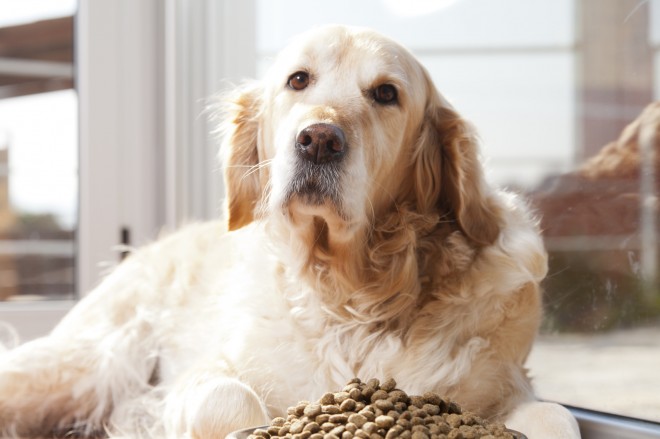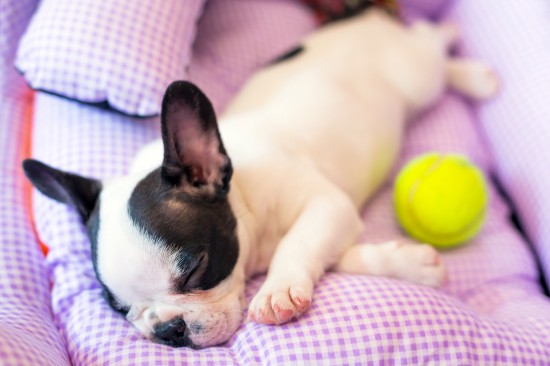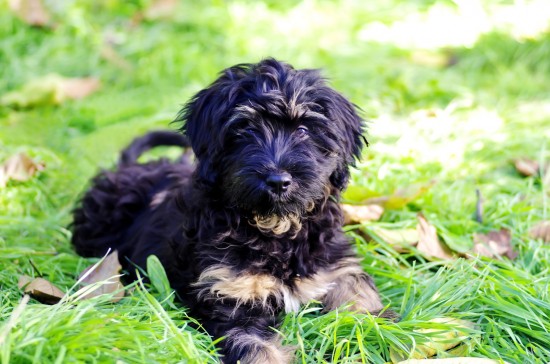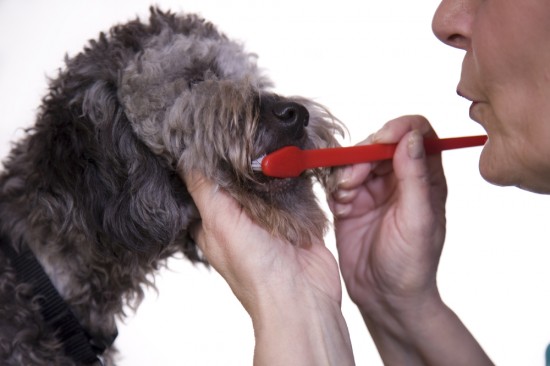
Although it is most common for small dogs to have anxiety issues, any dog can suffer with this problem.
Veterinarian say that sometimes the anxiety is due to a specific incident. In other cases, the cause for your dog's apprehension is harder to understand. Although their fears may seem ridiculous and silly to you, they are very real to your dog.
Dogs declare their fears and anxiety with troubling behavior. Animal shelters report that the majority of dogs surrendered are normally there because of behavior fueled by anxiety. Unfortunately, some dogs look for an outlet for their anxiety with bad habits and behavior. Anxiety is displayed in a variety of ways including: urinating, snapping, panting constantly, trembling and destroying their environment.
Urinating: Some pets get so overly excited when you enter your home or visitors show up on your doorstep, that they release their bladder as they move. Usually a trickle.
Snapping: Small dogs are most likely to have this habit. They overreact to certain situations where they may feel threatened.
Trembling/Panting: Some dogs have these physical habits when they get stressed. Fortunately, this is not as difficult to deal with as snapping and urinating.
We have suggestions that are recommended by professionals to help lessen the degree of anxiety your dog is experiencing. Everyone will be happier if you can put a curb on their troublesome behavior and your dog will be much better-off.
Do not respond to your dog with anger. This will only serve to make them more nervous and will probably further their anxiety problem. The process to correct their anxiety requires patience.
Do not respond to your dog with soothing consolation. This will confirm their fear. If you are saying "poor baby" in a sympathetic tone, they feel their anxiety is validated. They'll also believe that they will be hugged and given attention when displaying the anxiety behavior. You don't want that either.
Ignoring their behavior, distraction, and avoiding particular situations are all good tools to help your dog.
If your dog gets overly enthusiastic when you walk in your house, ignore them as best you can until they calm down. Once they've settled down, then turn to them and greet them. Ultimately the connection with behaving calmly will be associated with attention and the hyper behavior will be lowered.
If they are trembling and shaking during a thunderstorm, during fireworks, or other distressing situation, behave normally and have a positive and upbeat tone of voice with them. Put on some music to drown out loud noises. If possibledraw the blinds or keep the dog in an area that does not allow them to see visuals of fearsome sights like lightning flashes.
Kenneling your dog during adverse situations can help calm them down. Sometimes visitors are the trigger. In that case, separate the dog or kennel them in a different part of the house where they will feel more safe. Distract them with a toy while they are secluded. Distraction works well to reduce anxiety.
For acute cases, medication may be the answer. Talk to your vet about your individual situation and get their feedback. Used occasionally, medicating your dog may be the best answer for unavoidable situations.
Now that you have the tools, you need to start practicing them. Even if you can't cure the anxiety 100%, you will likely be able to alleviate it quite a bit.
 Five Canine Health Conditions That Can Be Helped Or Hindered By Their Food
Five Canine Health Conditions That Can Be Helped Or Hindered By Their Food
 Why Natural Foods are Better for Health of Dogs?
Why Natural Foods are Better for Health of Dogs?
 Popular Snake Breeds For Beginners
Popular Snake Breeds For Beginners
 Feeding Tips For Dogs - The Right Way To Feed A Dog
Feeding Tips For Dogs - The Right Way To Feed A Dog
 How Safe Are The Treats You Offer Your Pet?
How Safe Are The Treats You Offer Your Pet?
 Unusual Pets - The Madagascan Hissing Cockroach
Unusual Pets - The Madagascan Hissing Cockroach
 Irish Wolfhound Hereditary Health And Genetic Diversity
Irish Wolfhound H
Irish Wolfhound Hereditary Health And Genetic Diversity
Irish Wolfhound H
 Your Puppy’s First Week In His New Home
Your Puppy’s Firs
Your Puppy’s First Week In His New Home
Your Puppy’s Firs
 Keeping Green Iguanas Successfully
Keeping Green Igu
Keeping Green Iguanas Successfully
Keeping Green Igu
 Why Might Female Dogs Display Humping Behaviour?
Why Might Female
Why Might Female Dogs Display Humping Behaviour?
Why Might Female
 The Importance Of Looking After Your Dogs Teeth
The Importance Of
The Importance Of Looking After Your Dogs Teeth
The Importance Of
Copyright © 2005-2016 Pet Information All Rights Reserved
Contact us: www162date@outlook.com